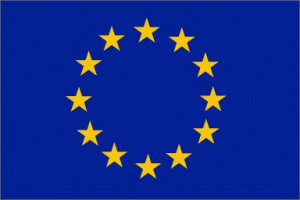 Today, three Committees of the European Parliament voted to recommend the rejection of ACTA by the full Parliament – the Committee Civil Liberties (LIBE), Committee on Legal Affairs (JURI) and the Committee on Industry, Research and Energy (ITRE). In mid June, ACTA will go before the Committee on International Development (DEVE). On June 21, it will go before the fifth and final Committee on International Trade (INTA). 22 European countries have signed ACTA, but the agreement must be approved by the full Parliament in order to take effect. The vote by the full Parliament is scheduled for July 3.
Today, three Committees of the European Parliament voted to recommend the rejection of ACTA by the full Parliament – the Committee Civil Liberties (LIBE), Committee on Legal Affairs (JURI) and the Committee on Industry, Research and Energy (ITRE). In mid June, ACTA will go before the Committee on International Development (DEVE). On June 21, it will go before the fifth and final Committee on International Trade (INTA). 22 European countries have signed ACTA, but the agreement must be approved by the full Parliament in order to take effect. The vote by the full Parliament is scheduled for July 3.
Statements:
Amelia Andersdotter, Greens/EFA MEP [link]
“The EP has today delivered further blows to ACTA with a number of committees voting to recommend rejection. After today’s pummeling, the lead trade committee is set to deliver its verdict in June. Given the weight of public and political opposition to this problematic agreement, we hope that the EP will be able to finish off ACTA before the summer, with a final plenary vote against granting consent to the ratification.
“In addition to concerns about data protection and internet freedom, there are concerns about the potentially far-reaching implications of ACTA on fundamental rights, freedom of establishment and access to vital medicines. At EU-level, ACTA would block the much-needed reform of EU copyright law and instead lead to a heavy-handed and repressive enforcement of copyright with no regard to either the basic rights of citizens or the needs of European digital entrepreneurs.
“Intellectual property enforcement cannot entail a sweeping approach, instead there is a need to assess the different challenges facing different economic sectors and different aspects of intellectual property and develop individual solutions for these sectors.”
Jeremie Zimmerman, Spokesman for La Quadrature du Net. [Link]
“This vote should resonate as a wake-up call for legislators in EU and beyond: Attempts to enforce an obsolete vision of copyright can only hurt a free Internet, and the interests of the innovative actors who are building the foundations of tomorrow’s economies. This vote is an invitation to reform copyright so as to take into account new practices and technologies, and lift the burden that it creates for innovative online services.”




